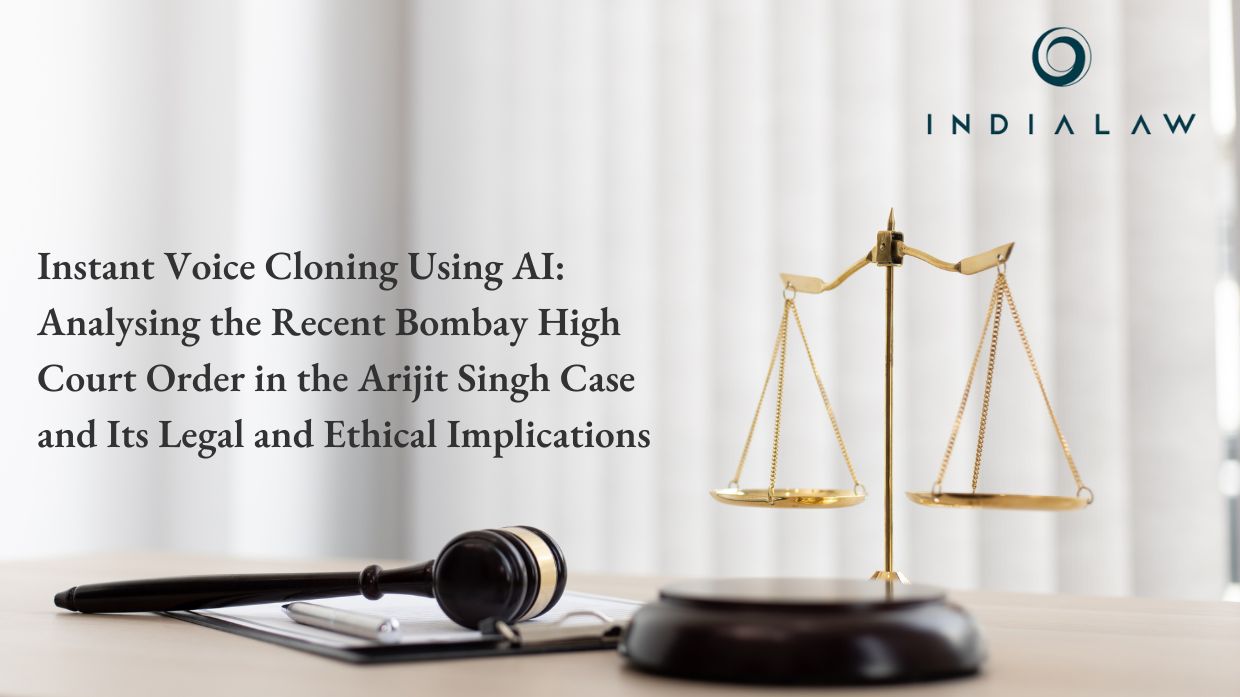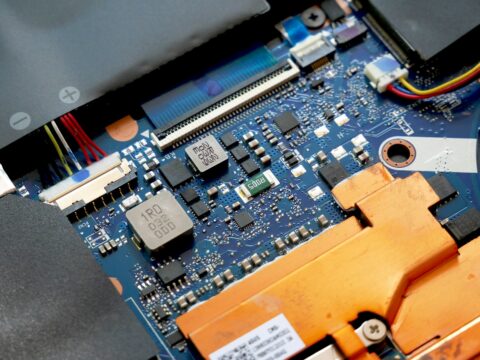Instant Voice Cloning Using AI: Analysing the Recent Bombay High Court Order in the Arijit Singh Case and Its Legal and Ethical Implications

In recent years, the field of artificial intelligence has made remarkable strides, particularly in the realm of voice synthesis. Instant voice cloning is now a reality, allowing users to recreate a voice that sounds strikingly similar to a specific individual using just a few minutes of audio recording. This technology enables the generation of songs, speeches, and various audio content without the permission or knowledge of the person whose voice is being replicated, raising both opportunities and legal/ethical concerns.
The Rise of AI Voice Generator Platforms
AI voice generator platforms have evolved significantly, producing speech output that is not only realistic but also lively. The fidelity of voice replication has reached a point where the output of popular vocal artists is nearly indistinguishable from the original. This capability opens new avenues for creativity in music production, marketing, and personalized content creation.
One of the standout features of modern voice synthesis platforms is the ability to manipulate and enhance the generated voice using Speech Synthesis Markup Language (SSML). This XML-based markup language allows users to fine-tune various aspects of the voice, giving them precise control over the speech characteristics. With SSML, users can alter pitch, pronunciation, rate, volume, and more, tailoring the output to achieve the desired effect.
While the potential applications of instant voice cloning are vast—from creating personalized greetings to generating audiobooks—there are significant legal and ethical implications to consider. The ability to replicate someone’s voice without their consent raises questions about privacy, intellectual property, and the potential for misuse. As the technology becomes more accessible, and in the absence of clear legal guidelines and regulations, it becomes increasingly important to protect vocal artists from potential exploitation.
The Bombay High Court Ruling
The Bombay High Court recently addressed such violations, granting ad interim ex-parte relief to protect the interests of popular Bollywood vocal artist Arijit Singh (Arijit Singh Vs. Codible Ventures LLP, Interim Application (L) No. 23560 of 2024 in Com IPR Suit No. 23443 of 2024).
The court recognized Arijit Singh as a notable singer and performing artist in India who has gained immense goodwill and reputation throughout his successful career, achieving celebrity status. It further established that celebrities are entitled to protection of their personality traits—such as their name, image, likeness, voice, and signature—against unauthorized commercial exploitation by third parties.
The court referenced various case laws affirming that personality/publicity rights are vested in celebrities. Any unauthorized use of a celebrity’s name or persona attributes constitutes a violation of their valuable personality rights and right to publicity. The court held that making AI tools available to convert any voice into that of a celebrity without permission is a violation of these rights, as such tools facilitate unauthorized appropriation and manipulation of a celebrity’s voice—an integral component of their personal identity.
The court expressed its concern about the vulnerability of celebrity performers to unauthorized generative AI content on platforms operated by some defendants, who capitalize on Arijit Singh’s popularity. These platforms encourage internet users to create counterfeit sound recordings and videos that misuse his character and identity.
Furthermore, the court stated that creating new audio or video content—such as songs or videos using Arijit Singh’s name, voice, likeness, and persona—without his consent and commercially exploiting it could jeopardize his career and livelihood. Allowing such platforms to continue using his name and voice without consent not only risks severe economic harm to his career but also opens the door for misuse by unscrupulous individuals.
The court emphasized the need to protect Arijit Singh from exploitation of his personality rights, stating that while freedom of speech and expression allows for critique and commentary, it does not grant permission to exploit a celebrity’s persona for commercial gain.
The ex-parte, ad interim order issued by the court temporarily restrains the particular respondents from violating Arijit Singh’s personality and publicity rights. This includes using his name, voice, vocal style, techniques, photographs, likeness, signature, and any other attributes of his personality for commercial or personal gain without his consent this encompassing all forms of media, including online platforms and advertisements.
Conclusion
The Bombay High Court’s ad interim order marks a significant step in recognizing and protecting the rights of vocal artists in the age of AI. As instant voice cloning technology becomes more sophisticated and accessible, establishing clear legal frameworks to safeguard individuals’ rights against potential exploitation is crucial. Balancing innovation with ethical considerations is vital to ensure that this powerful technology is used responsibly, fostering creativity without infringing on personal rights. As we navigate this new reality, ongoing discussions around legality and ethics will be essential to protect artists and their identities in the digital age.
For further details write to Rahul.sundaram@indialaw.in
By entering the email address you agree to our Privacy Policy.



